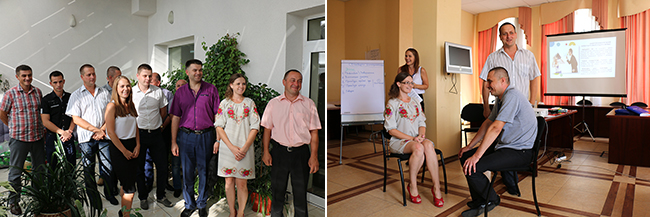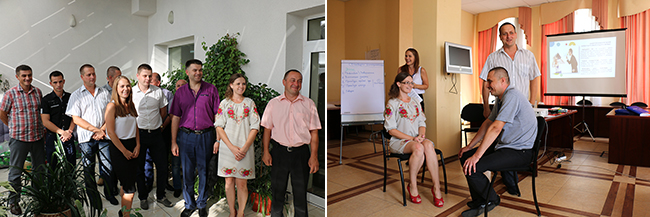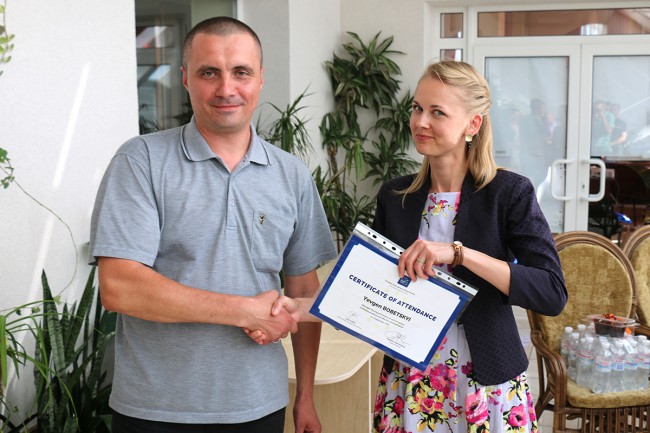EUAM provides customer oriented administrative service training for Ministry of Internal Affairs
September 13, 2016

The second round out of a total of four EUAM-supported 5-day trainings to enhance service quality and administrative services provided by the Ministry of Internal Affairs took place between 5-9 September 2016. “The aim of this initiative is to support the development of a citizen-oriented, user-friendly, transparent and efficient system of administrative service provision,” said Laidi Surva, Lead Adviser on Good Governance in EUAM.
The course, which focuses on anti-corruption, professional ethics and effective communication, was delivered to 12 staff from six regional service centres (Donetsk, Zakarpattya, Mykolaiv, Ternopil, Cherkasy and Chernihiv regions). The approach taken was to ‘train-the-trainers’ and the course was complemented with tips and practical guidelines on training techniques. Now, participants will be ready to deliver induction training to newly recruited front-office staff of the Ministry of Internal Affairs territorial service centres.
“The Ministry of Internal Affairs of Ukraine is in charge of providing a number of administrative services essential for most citizens in Ukraine, for instance services related to driving licences or vehicle registration. In order to ensure high quality service provision, it is necessary to support the Ministry of Internal Affairs service centres both on a managerial level as well as strengthening the professional and communication skills of the front-office staff,” emphasised Surva. Anti-corruption and integrity policies will be incorporated as a central feature in the organisation of the centres.
After the training sessions are concluded, EUAM will continue to provide assistance by observing the first induction trainings given by the newly trained trainers. “Although training is highly important, so are post-training support and further professional development of service centres staff,” said Nadia Tretiak, Public Administration Officer in EUAM. Feedback will be given to not only the regional trainers but also to the Main Service Centre in Kyiv for possible amendments to the training programme or input on further training needs.
In addition to training instructors in territorial service centres throughout Ukraine, the project involves a 2-day management training for managers in the Main Service Centre in Kyiv and all the regional service centres, an induction training programme with an online course on professional requirements, anticorruption, professional ethics and communication skills and a train-the-trainers programme that will remain in use by a pool of trainers in the service centres in all regions of Ukraine.
“The administrative service centres were created after the adoption of the Law on National Police in 2015 on the basis of State Automobile Inspection Service and they are still in the early days of reorganisation and realignment. Being built on an old-type of a service provision system, the Ministry of Internal Affairs Main Service Centre, all 26 regional service centres as well as 148 territorial service centres have to go through a mentality change and this will take time. However, by paying due attention to change management and leadership skills on the managerial level as well as professional ethics, anticorruption and communication skills on the client-facing level, this organisation can become a good example to use for building up or restructuring other similar systems in the Ukrainian public administration,” concluded Surva.
By the end of November, all trainings for management and front-office staff will have been delivered by EUAM. By then, the online training course will also have launched for use in all the administrative service centres of the Ministry of Internal Affairs.



